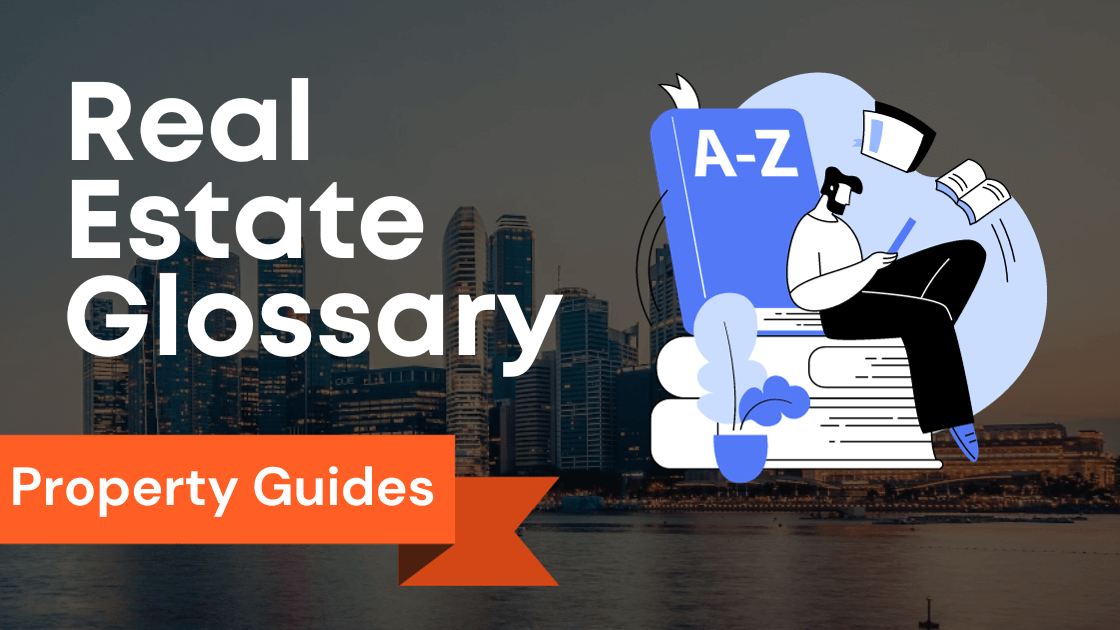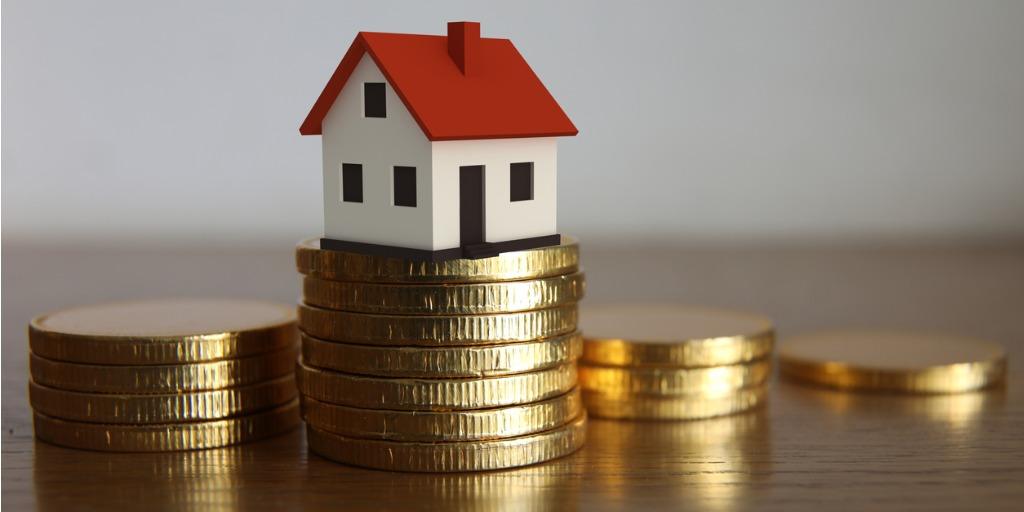
Property owners and investors need to know and understand the annual value (AV) of their property.
AV is a key factor in determining property tax bills, as it is the basis for the calculation of property taxes.
The AV of your property is usually reviewed every five years by the government, known as the AV revision.
Importance of knowing property annual value (AV) in Singapore
With the onset of COVID-19, the government announced relief measures to help ease the financial burden of property owners.
Finance Minister Lawrence Wong had said that property tax rebates would be granted to those affected by the pandemic.
By utilizing the Property Value Tool provided by the government, property owners can check the AV of their property and estimate their property tax liability.
Understanding annual value can also help property owners potentially reduce their tax liability or increase the value of their property.
Moreover, knowing AV can also be beneficial in determining rental income, as it is often used as a basis for rental calculations.
Property tax online payment is also available to ease the process of paying property tax bills.
Therefore, owning a property in Singapore entails understanding AV as it significantly affects financial planning and budgeting.
Definition Of Annual Value Of Property
The Annual Value (AV) is a crucial measure used in Singapore’s tax system to calculate property tax and government payouts.
In simple words, AV is the estimated annual rent that a property can fetch if it were put out for rent.
The Inland Revenue Authority of Singapore (IRAS) is the government body tasked with the crucial role of determining the Annual Value (AV) of properties across the country.
The annual value of a property is determined by evaluating several factors such as the property value and the condition of the property.
These elements help in determining the amount of money a property can earn if it were to be rented out.
After the determination process, the AV is base for calculating property tax and other government payouts.
This amount is used to calculate the property tax, which is 10% of the property’s assessed value.
Additionally, the government uses the AV of a property to calculate payouts for schemes like the GST Voucher and the Rental Rebate Scheme.
The process of determining the AV of a property is a complex one.
Several factors come into play, including the property’s value and condition, which help in determining the estimated annual rental income.
Further elements that need to be considered when av is determined for a property include the property’s location, accessibility, age, and type.
All these factors are analyzed and quantified to arrive at a final figure, which represents the estimated annual value of the property.
It’s important to remember that the assessed value (AV) of a property is an estimation, and it could differ from the actual rental income.
The annual value (AV) of a property plays a crucial role in determining its tax liability. It is therefore essential to make sure that this value is calculated accurately to prevent any discrepancies that may lead to future payment issues.
The recent update from IRAS about the revision of AVs in 2023
In October 2022, the Inland Revenue Authority of Singapore (IRAS) announced that it will conduct a general revaluation of all properties in Singapore in 2023, resulting in revised Annual Values (AVs) for all properties.
This exercise aims to ensure that AVs remain up-to-date and reflect current market conditions.
The revision of AVs affects residential properties, including HDB flats, private properties, and landed properties.
Any properties with an annual value will be taxed, and property owners can expect to receive their revised AV notices in early 2024.
The revised AV will also affect the amount of property tax payable, which will take effect from 1 January 2025.
This update from IRAS is an important one, as it impacts the property market of Singapore significantly.
Property agents and owners need to pay attention to this revision of AV in 2023 as it would mean potential changes to the amount of tax payments required for owned properties in the area.
We encourage property owners to proactively look into how this update may affect their place of residence and seek professional advice as necessary to avoid any errors in their tax payments.
Overall, this IRAS update is a timely and necessary one to ensure that the Singapore property market remains fair and in line with current market conditions.
Calculation of the Annual Value of a property
When determining the annual value (AV) of a property, various factors come into play.
The AV of owner-occupied properties is calculated differently from non-owner-occupied properties.
For instance, an owner-occupied property with an AV of $10,000 does not attract any property taxes as the tax rate for such properties is 0%.
For non-owner-occupied residential properties, the tax payable is determined by applying a tax rate of 10% on the AV.
Therefore, a non-owner-occupied residential property with an AV of $20,000 will attract a property tax of $1,400.
On the other hand, non-owner-occupied commercial properties are subject to a higher tax rate.
The tax payable for such properties is determined by applying a tax rate of 20% on the AV.
For example, a non-owner-occupied commercial property with an AV of $50,000 will attract a property tax of $10,000.
The AV of a property is the estimated gross annual rent that the property can fetch if it were to be rented out on the market.
This figure is determined based on the estimated monthly rent that the property can command, taking into account its physical attributes and location.
For instance, a 5-room HDB flat in Tanah Merah will likely command a higher monthly rent than a similar-sized flat in a less prime location.
Therefore, the AV of the former will be higher than that of the latter.
In conclusion, the calculation of the AV of a property is an essential aspect of determining the property taxes payable by the owner.
The tax rate is influenced by whether the property is owner-occupied or non-owner-occupied, with the latter attracting higher rates.
The AV is based on the estimated gross annual rent the property can generate, taking into account its physical attributes and market location.
Factors considered by IRAS when determining AV
In Singapore, the Inland Revenue Authority of Singapore (IRAS) is responsible for determining the Annual Value (AV) of residential and commercial properties in the country.
To do so, IRAS considers various factors, including property value, the condition of the property, physical attributes, and market rentals for similar properties in the same area.
The AV of a property affects the amount of property tax you pay. If you make physical changes to your property like renovations or additions, it can affect your AV and increase your property tax.
Other factors that IRAS considers when determining AV include the property’s age, condition, location, and any restrictions on its use or occupation.
For instance, a well-maintained HDB flat that is located in a prime area with good connectivity and amenities may have a higher AV than a similar property located in a less developed area.
Similarly, a property that is used for commercial purposes may have a higher AV than one used for residential purposes.
IRAS conducts regular assessments of properties in Singapore to ensure that the AV is accurate and reflective of the current market conditions.
By taking into consideration these various factors, IRAS ensures that property owners pay the appropriate amount of property tax while also ensuring that the tax burden is distributed fairly across the board.
How AV affects the property tax rate
The property tax rate is a critical factor that determines the amount of taxes individuals need to pay to the government.
The Annual Property Tax is charged at a percentage of the annual value (AV) of a property.
AV is used to calculate the estimated gross rent or rental value of a property as of January 1, 2023.
The higher the AV of a property, the higher the property tax payable is.
The formula for calculating property tax rates is determined by the government and is revised periodically.
To calculate the Property Tax Payable, property owners must multiply their property’s AV by the applicable tax rate.
The AV system also affects the eligibility of property owners for government subsidies and schemes, such as Owner-Occupier Tax Rates and Non-owner-occupier Residential tax rates.
In other words, the AV can determine whether a property is eligible for a specific tax rate based on the occupancy status.
Therefore, it is essential to understand how AV affects the property tax bill to make adequate financial arrangements.
In conclusion, the AV system is crucial in determining the rates of property tax payable and the eligibility of government subsidies and schemes.
As property owners prepare for the 2023 property tax bill, it is necessary to pay attention to changes in the revision of the government’s property tax formula and the impact of GST.
How to check the annual value of property
To check your property’s AV, the first step is to log in to myTax Portal.
Once you are logged in, you can access your property’s Valuation Notice, which will inform you of your property’s annual value.
If you are unsure how to proceed, you can always contact the IRAS customer service center for assistance.
Alternatively, you can use the Property Tax Calculator, which is available online through the IRAS website.
To do so, go to the Property Tax section on the IRAS website and click on “Property Tax Calculations” under the “Quick Links” section.
From there, select “Check Annual Value of Property” and log in to your SingPass account.
After logging in, you just need to provide your property’s postal code, address, and tax reference number, which is present on your property tax bill or notice.
Within 30 days, you will be able to view your property’s AV.
It is important to note that the majority of HDB flats are already included in the Property Valuation List.
However, if you own a private property, you will need to get an estimate of your property’s AV.
This can be done by contacting a licensed valuer, who will provide you with a report that you can then submit to the IRAS.
Overall, checking your property’s AV is an important step in ensuring that you are paying the correct amount of property tax each year.
Steps to dispute the av of a property with IRAS
If you own a property that you believe has an incorrect Annual Value (AV), there are steps that you can take to dispute it with the Inland Revenue Authority of Singapore (IRAS).
The AV determines the property tax that owners must pay. It considers different factors like market rental rates, government subsidies, and property ownership.
If you disagree with the AV that the IRAS has assigned to your property, the first step is to submit a Notice of Objection (NOO) within 30 days of receiving your property tax bill.
Along with the NOO, you will need to provide supporting documents and evidence to back up your claim.
The IRAS will then review your case, taking into consideration the factors that were used to determine your AV.
They may also request additional information if needed.
Property owners who are successful in their appeal will receive a revision to their property’s AV, which will result in a lower property tax bill.
It is important to note that the AV is subject to an Annual Review, which means that it can be adjusted each year based on the property market and related factors, there have been changes.
What to do if IRAS rejects your dispute?
If the IRAS reject your dispute regarding the Annual Value (AV) of your property, there are further steps you can take to rectify the situation.
Firstly, you can file a second appeal with the Valuation Review Board (VRB).
This independent body oversees appeals on AV matters and is empowered to revise the AV if it is proven to be inaccurate.
When determining the AV for your property, IRAS considers various factors such as location, age, size, condition, and rental income.
You can also take advantage of certain tax rebates such as the One-Off Rebate and Self-Employed Person Income relief to reduce your Income Tax burden.
However, if you are still dissatisfied with the IRAS decision, you will need to file an appeal with VRB within 30 days from the date of the decision and attend a hearing to present your case.
The upcoming budget 2022 will also bring changes that could affect your AV, so it is essential to stay informed and take action accordingly.
Starting from 1 January 2023, there will be changes to AV revision rates, and it is important to keep track of these changes as they may affect your property valuation.
Importance of knowing your property’s AV for better financial planning
The Annual Value (AV) of private properties, excluding furniture, is a crucial factor to consider for better financial planning.
AV is the estimated gross annual rent of a property and is determined by the Inland Revenue Authority of Singapore (IRAS) based on similar or comparable properties within the vicinity.
The AV has had a significant effect from 1 January and impacts the amount of property tax payable.
For instance, homeowners can estimate their property tax liability by using the prevailing tax rate and the median annual values of comparable properties in the vicinity.
Additionally, knowing the AV can help property owners plan for future tax increases, which will impact their overall finances.
By considering the AV, property owners can also assess their property’s value and monitor its appreciation or depreciation.
Therefore, it is crucial to know your property’s AV for better financial planning and to make informed decisions related to property ownership.
Eligibility for government subsidies and schemes
Eligibility for government subsidies and schemes is often determined by various factors such as the type of property, owner occupancy, and market rates.
The Annual Value (AV) of a property is one of the crucial factors used in determining eligibility for various government support schemes and subsidies such as the Home Protection Scheme and the GST Voucher Scheme.
To qualify for the GST Voucher, for instance, a person must live in a property with an AV of $21,000 or below.
Therefore, it is essential to understand the AV of your property to determine one’s eligibility for these schemes and subsidies.
Besides, eligibility for government schemes and subsidies is also determined by factors such as unit type and maintenance costs.
For instance, eligible owner-occupiers of 5-room HDB flats can receive a higher rebate in their property tax, which in turn reduces their property costs.
As the rental market and market rental rates increase, Government Aid Schemes and Government Support Schemes can provide additional support to individuals who struggle to afford a property.
Hence, understanding the various factors that affect eligibility for these subsidies and schemes is essential to benefit from them.
The formula for calculating property tax based on AV and tax rates
The calculation of property tax is an essential component of the real estate industry.
The formula for determining it is relatively straightforward: Property Tax = AV x Tax Rate.
The tax rate is an essential variable that can affect the payable amount.
For instance, for owner-occupied properties, the tax rate is 0%, while for non-owner-occupied properties, it ranges between 10% and 20% of the AV, based on the property type.
Thus, property owners need to calculate their tax payable using the prevailing tax rate.
Rental rates and the actual rent received can also affect the tax payable.
However, market rental rates are not considered when calculating property tax.
When considering non-owner-occupied properties, an increase in market rental rates can increase property tax.
Maintenance costs and maintenance fees incurred can also be factored into property tax calculations.
It is noteworthy that the formula applies differently to residential and non-residential properties.
Market rentals should also be considered when determining the tax payable on non-owner-occupied residential properties.
Thus, property owners need to keep in mind these factors while calculating their property tax payable, to avoid underpaying or overpaying their taxes.
Different tax rates for owner-occupied and non-owner-occupied properties
Different tax rates for owner-occupied and non-owner-occupied properties exist for several reasons, including the fact that the rental value of a property can vary depending on its location and the local rental market.
Comparing similar or comparable properties within the area can help to determine an estimated gross annual rent for the property, which can be used to calculate the appropriate tax rate.
When rentals of HDB flats or changes in the rental market occur, the Government may use this data to help determine an increase in market rental rates, which can impact the tax rate.
The income received from rental properties is considered assessable income and falls under the Non-owner-occupier Residential tax rates, whereas the rent received from owner-occupied properties is not taxable.
If a non-owner-occupied property is rented out, the annual rental income should be reported and the appropriate Non-owner-occupier Residential tax rate applied.
Property owners should keep in mind that tax rates can fluctuate from year to year, as they are designed to reflect changes in the rental market and property values.
Knowing the tax implications of owning and renting out properties can assist property owners in making informed investment decisions and ensuring compliance with applicable laws and regulations.
Frequently Asked Questions
How often is the Annual Value of Property in Singapore updated?
The Annual Value of Property in Singapore is updated every year, and it is calculated based on the estimated annual rent of the property.
The Annual Value, which is used by the Inland Revenue Authority of Singapore (IRAS), is determined using several crucial factors such as property size, location, age, and type.
Property owners in Singapore will receive a Valuation Notice to inform them of the updated Annual Value of their property.
How does the Annual Value of Property affect the rental market in Singapore?
The Annual Value of Property in Singapore can have an impact on the rental market.
As the Annual Value is used to calculate property taxes, higher Annual Values could lead to higher rental prices.
Property owners who are looking to rent out their properties should know the Annual Value of their property as it can affect their rental income.
How does the Annual Value of Property differ for residential and commercial properties in Singapore?
Did you know that in Singapore, the Annual Value of HDB flats and private properties vary significantly?
HDB flats have a lower Annual Value as they are generally less valuable compared to private properties.
The Annual Value of private properties, such as condominiums or landed houses, is generally higher as they are considered to be more luxurious and expensive.
The factors used to determine the Annual Value may also differ for HDB flats and private properties.
Are there any penalties for property owners who do not pay their property taxes based on their Annual Value?
Property owners in Singapore who do not pay their property taxes based on their Annual Value may be subject to penalties.
Property owners who fail to pay their property taxes may face legal repercussions from the IRAS, including fines and other legal action.
Can property owners in Singapore receive a rebate or refund for overpaying their property taxes based on their Annual Value?
Property owners in Singapore who have overpaid their property taxes based on their Annual Value may be eligible for a rebate or refund.
Property owners can contact the IRAS to request a review of their property tax assessment if they believe that they have overpaid their property taxes.
If it is found that the property owner has overpaid, the IRAS will issue a rebate or refund to the property owner.
How is the Annual Value of Property in Singapore determined?
The Annual Value (AV) of properties in Singapore are determined by the Inland Revenue Authority of Singapore (IRAS).
They calculate the Annual Value based on a set of factors, such as the size, location, age, and type of property.
The AV is then used to determine the property tax that property owners need to pay.
The AV is calculated based on a percentage of the estimated annual rent of the property.
The percentage varies depending on the type of property.
For example, HDB flats have a lower percentage compared to private properties.
Every property has an Annual Value (AV) provided by the Inland Revenue Authority of Singapore (IRAS), and property owners will be notified about the updated AV of their property through a Valuation Notice.
The assessed value (AV) of a property plays a crucial role in determining the amount of taxes it incurs. As a responsible property owner, it is imperative to stay informed of your property's AV to avoid miscalculating your tax payments.




















